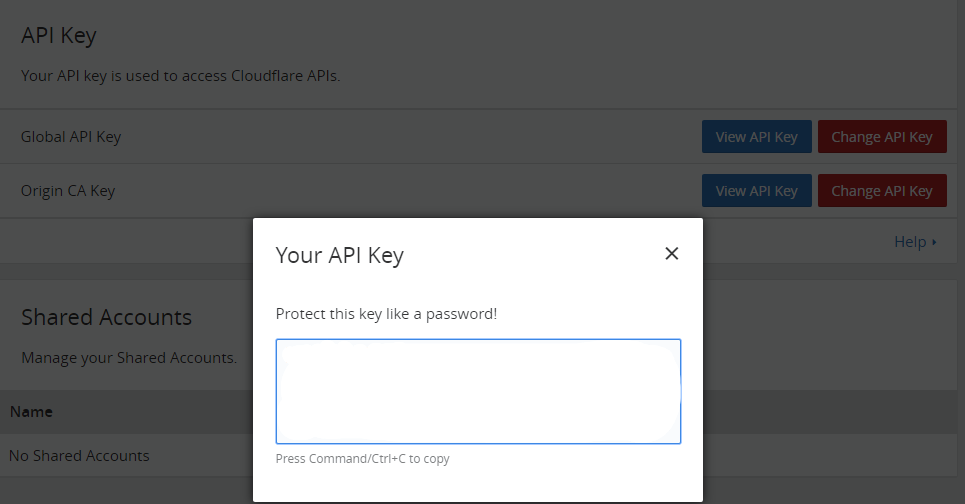dehydrated using cloudflare hook
Posted on February 1, 2017 • 5 minutes • 907 words
After the fairy dust has settled on Let’s Encrypt, allot of good solutions are out there to get a valid certificate using the ACME protocol (see client list). Most of the technique’s use webroot as verification technique, while this is fine for most websites, it has some downsides. For one, you need to adapt (let it be adapted) the webserver configuration, to allow connection to the webroot, for allot of webservers this is difficult or annoying. The alternative solution is to add a TXT record in the DNS manager and verify the domain using that method. This however, is more difficult to automate, but if you use cloudflare like I do (at least for DNS) you can automate it pretty easely, using dehydrated (previously known as letsencrypt.sh) and the cloudflare hook (by kappataumu). This is how I generally install it on non-public servers that require https.
Requirements
Some of these might already be installed but for a clean server they aren’t. You do need epel-release, so after that install, we need to update yum so that the packages and dependency’s can be found.
yum install epel-release yum update yum install git python-pip gcc python-devel libffi-devel openssl openssl-devel
Setup
Now its time to get the software that runs this setup : I for one do this in /opt but its totally up to you.
cd /opt git clone https://github.com/lukas2511/dehydrated
Next we are going to download the hook for cloudflare DNS :
cd dehydrated mkdir hooks git clone https://github.com/kappataumu/letsencrypt-cloudflare-hook hooks/cloudflare
Now we need to run the requirements of python, on Centos 6/7, the default python version is 2.X So run :
pip install -r hooks/cloudflare/requirements-python-2.txt
For linux distro’s where Python 3.x is default use :
pip install -r hooks/cloudflare/requirements.txt
If that finishes ok, its time to make a config file for dehydrated. (not strictly necessary but for a cron & automating allot easier!)
Config
Dehydrated uses a file “config”, I however dislike this and renamed it config.sh (as its shell code) and linked a config file. (you could even put it in /etc where this would fit better) We also need a file _domains.txt _this is a space separated list of the domain + sub-domains, and if you have multiple domains, split them by a line break.
cd /opt/dehydrated touch config.sh ln -s config.sh config touch domains.txt
You can find an example config + domains.txt in docs/examples/.
This is a valid domains.txt :
svennd.be www.svennd.be divebug.com www.divebug.com demo.divebug.com
This will request two certificates, one for svennd.be and one for divebug.com the www is a sub-domein and also demo is a sub-domain.
My config : (stripped of sensitive information)
# cloudflare settings export CF_EMAIL="" export CF_KEY="" # letsencrypt.sh export CHALLENGETYPE="dns-01" export CONTACT_EMAIL="valid@mail.ext" export HOOK="hooks/cloudflare/hook.py" export RENEW_DAYS="60"
This will check if the current certificates are valid for at least 60 days (RENEW_DAYS) if not it will get a new certificate. note that you need to change CONTACT_EMAIL, as this will inform you if the renew hasn’t happened and you did not notice.
CF_EMAIL is the login email for Cloudflare. The CF_KEY is an API key used to access Cloudflare API’s you can find it under my account

Getting certificate
First time you need to register & accept the agreement of Let’s Encrypt :
./dehydrated --register --accept-terms
If setup properly, you should now be able to run _./dehydrated -c _this would generate valid certificates : (something similar like 🙂
# ./dehydrated -c # INFO: Using main config file /opt/dehydrated/config Processing svennd.be with alternative names: www.svennd.be + Checking domain name(s) of existing cert... unchanged. + Checking expire date of existing cert... + Valid till Apr 2 09:21:00 2017 GMT (Less than 91 days). Renewing! + Signing domains... + Generating private key... + Generating signing request... + Requesting challenge for svennd.be... + Requesting challenge for www.svennd.be... + CloudFlare hook executing: deploy_challenge + Settling down for 10s... + Responding to challenge for svennd.be... + CloudFlare hook executing: clean_challenge + Challenge is valid! + CloudFlare hook executing: deploy_challenge + Settling down for 10s... + Responding to challenge for www.svennd.be... + CloudFlare hook executing: clean_challenge + Challenge is valid! + Requesting certificate... + Checking certificate... + Done! + Creating fullchain.pem... + CloudFlare hook executing: deploy_cert + ssl_certificate: /opt/letsencrypt/certs/svennd.be/fullchain.pem + ssl_certificate_key: /opt/letsencrypt/certs/svennd.be/privkey.pem + Done! Processing divebug.com with alternative names: www.divebug.com + Checking domain name(s) of existing cert... unchanged. + Checking expire date of existing cert... + Valid till Apr 2 09:22:00 2017 GMT (Less than 91 days). Renewing! + Signing domains... + Generating private key... + Generating signing request... + Requesting challenge for divebug.com... + Requesting challenge for www.divebug.com... + CloudFlare hook executing: deploy_challenge + Settling down for 10s... + Responding to challenge for divebug.com... + CloudFlare hook executing: clean_challenge + Challenge is valid! + CloudFlare hook executing: deploy_challenge + Settling down for 10s... + Responding to challenge for www.divebug.com... + CloudFlare hook executing: clean_challenge + Challenge is valid! + Creating fullchain.pem... + CloudFlare hook executing: deploy_cert + ssl_certificate: /opt/letsencrypt/certs/divebug.com/fullchain.pem + ssl_certificate_key: /opt/letsencrypt/certs/divebug.com/privkey.pem + Done!
note : I cheated and put the renew_days from 60 to 91, since let’s encrypt certificates are valid for 90 days, this script would always request new certificates which is not needed.
I run this script in /etc/cron.weekly/cert.cron :
/opt/dehydrated/dehydrated -c
For debugging purpose it is sometimes useful to run it without the need for a fully working config, in that case you can use :
./dehydrated -c -d svennd.be -t dns-01 -k 'hooks/cloudflare/hook.py'
That’s it ! Fully configured certificate renewal process 🙂

 Buy me a Dr Pepper
Buy me a Dr Pepper